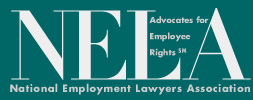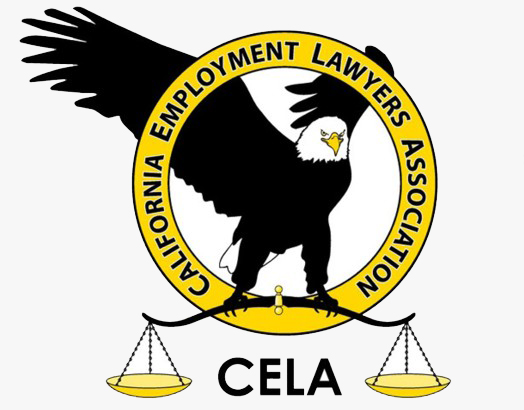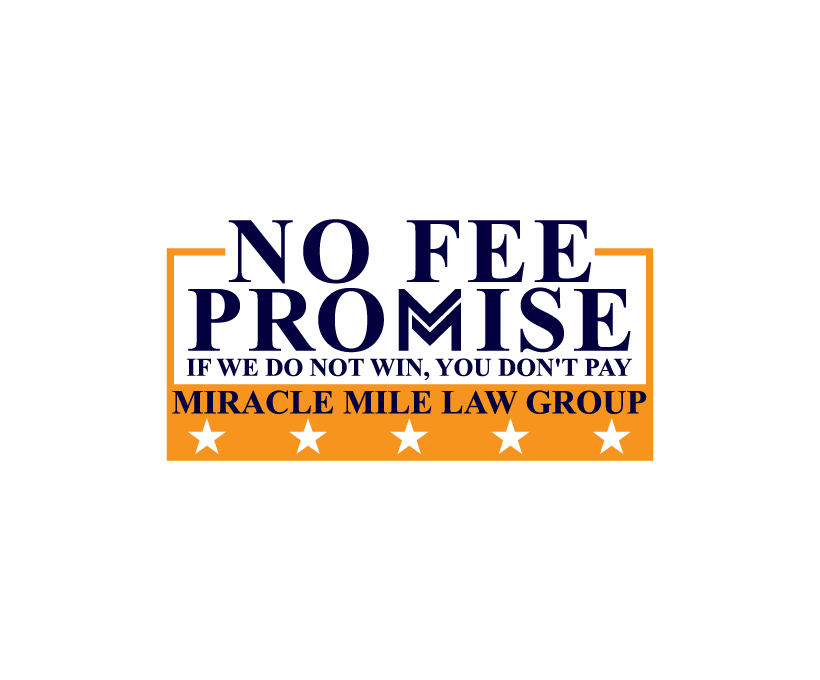Disability Discrimination
Serving throughout California, Miracle Mile Law Group is dedicated to championing the rights of employees, particularly in cases concerning disability discrimination.
Understanding Disability Discrimination under California State Law
Under both federal and California state law, employers are prohibited from discriminating against employees or job applicants based on their disabilities. The Americans with Disabilities Act (ADA) provides federal protections, while the California Fair Employment and Housing Act (FEHA) offers even broader protections for employees in the state.
Disability discrimination can manifest in various ways:
- Refusing to hire someone because of their disability.
- Not engaging in the interactive process to identify reasonable accommodations
- Not providing reasonable accommodations for employees with disabilities.
- Treating employees differently or harassing them because of their disability.
- Wrongfully terminating or demoting an employee due to their disability.

Essential Aspects of Disability Discrimination
- Definition of Disability: Under FEHA, a disability is a condition that limits a major life activity, including physical, mental, and social impairments.
- Reasonable Accommodation: Employers are required to provide reasonable accommodations unless doing so would cause undue hardship to the company. This can range from modifying work schedules to providing assistive tools.
- Interactive Process: When an employee requests an accommodation, employers must engage in a timely, good-faith interactive process to determine effective reasonable accommodations.
Determining if you have a viable case for disability discrimination involves evaluating several pivotal factors:
- Recognition of Disability: You need to establish that you have a qualified disability as defined under the relevant laws, such as the Americans with Disabilities Act (ADA) or the California Fair Employment and Housing Act (FEHA). This typically means a condition that significantly limits one or more major life activities.
- Qualification for the Job: Demonstrate that, despite your disability, you are qualified for the position in question. This means you have the necessary skills, experience, education, and can perform the job’s essential functions, either with or without reasonable accommodations.
- Adverse Employment Action: You must have experienced a negative employment decision or action. This could be anything from a refusal to hire or promote, wrongful termination, disparate treatment in work assignments, to a failure to provide reasonable accommodations.
- Link to Disability: There should be evidence or reason to believe that the adverse employment action was directly tied to your disability. It could be in the form of direct discriminatory remarks, patterns of behavior, or decisions that disproportionately impact disabled individuals.
- Employer’s Knowledge: It’s crucial that the employer is aware of your disability. This could be through direct communication, formal requests for accommodations, medical documentation, or other means.
- Disproportionate Treatment: If similarly situated employees without disabilities were treated more favorably, this could serve as evidence of discrimination.
- Employer’s Reasoning: Scrutinize the reasons your employer provides for the adverse action. If these reasons seem unfounded, inconsistent, or change over time, they might be pretexts or excuses for discriminatory behavior.
- Documentation and Witnesses: Any written communications, official reports, witness testimonies, or other evidence that can corroborate the discriminatory behavior will bolster your claim.
- Statute of Limitations: Ensure that you’re within the legal time frame to initiate a claim. Laws have set durations after the discriminatory act within which a lawsuit or complaint must be filed.
When suspecting disability discrimination, it’s paramount to consult with an experienced attorney. They can thoroughly assess your situation, gather necessary evidence, and advise on the viability and strategy of your claim. For those in Los Angeles, the team at Miracle Mile Law Group offers a comprehensive review and representation in such matters, ensuring that your rights are upheld and pursued.
How Miracle Mile Law Group Can Assist
If you believe you’ve been a victim of disability discrimination, the attorneys at Miracle Mile Law Group can provide:
- Case Evaluation: Our experienced attorneys will review your situation, advising on the potential strength and merits of your case.
- Representation in Court: We will fiercely represent your interests, advocating for justice, compensation, and ensuring your rights are protected.
- Negotiation: Our team can negotiate settlements with your employer, aiming for amicable resolutions without protracted litigation.
Victims of disability discrimination may be entitled to various remedies, including job reinstatement, back pay, promotion, reasonable accommodation, and compensation for emotional distress.
Proving Disability Discrimination
Establishing a case for disability discrimination requires a strategic presentation of specific elements. Firstly, the employee must demonstrate that they have a recognized disability under the applicable laws. Then, it’s essential to show that the employee was qualified for the job in question and could perform its essential functions, with or without reasonable accommodations. The crux of the case often rests on proving that the employee experienced an adverse employment action, such as being passed over for promotion, wrongfully terminated, or denied reasonable accommodations. This adverse action must be directly linked to the employee’s disability. Gathering evidence is crucial—this can include testimonials, documented instances of differential treatment compared to non-disabled peers, refusals to provide accommodations, or any derogatory remarks about the disability. Additionally, showing that the employer’s given reason for the adverse action is a pretext, or cover-up, for discrimination can strengthen the case. Given the intricate nuances of disability discrimination law, having seasoned legal guidance, like that provided by Miracle Mile Law Group, can be invaluable in effectively navigating and substantiating these claims.
Compensation for Victims of Disability Discrimination
For victims of disability discrimination, the compensation awarded can vary based on the nature and extent of the discrimination they faced. In many instances, victims can seek and recover back pay, which includes the wages, bonuses, benefits, and any other compensation lost due to the discriminatory actions. Front pay might also be awarded, which compensates the victim for the anticipated future losses resulting from the discrimination. In situations where the discriminatory behavior was particularly malicious or reckless, victims may be entitled to punitive damages aimed at punishing the offending employer and deterring similar conduct in the future. Additionally, compensation for emotional distress, pain, and suffering is often available, reflecting the psychological and emotional toll discrimination can take on an individual. Out-of-pocket expenses, like those for medical treatments or counseling arising from discriminatory acts, can also be reimbursed. Lastly, in some cases, legal fees and court costs may be recovered. It’s essential for victims to consult with experienced legal representation, such as the attorneys at Miracle Mile Law Group, to ensure they pursue and obtain the full compensation they deserve.
Reach Out to Us
The intricacies of disability discrimination laws require specialized understanding. If you suspect you’ve been discriminated against based on your disability or if you have questions about your rights as an employee, contact Miracle Mile Law Group today. Our dedicated team is ready to stand by your side and advocate for the justice you deserve.
Both Federal and State law offer significant protections for employees against disability discrimination.
State Law
Under California law, the Fair Employment and Housing Act (“FEHA”) prevents employers from taking certain actions against disabled employees. In order to hold an employer liable for disability discrimination at work under the FEHA, a few things need to be satisfied.
First, you must determine whether your disability is recognized under the FEHA statute. Usually, most physical disabilities such as blindness and paraplegia are recognized disabilities; some mental disabilities, such as anxiety and clinical depression are also recognized under FEHA. See below for a full list of disabilities that qualify under FEHA.
Second, the employer must have either been given notice of the disability. Fortunately, this does not mean that you must have directly informed your supervisor of your disability. So long as your disability was known (or should have been known) to your employer through observation or notice from a third party, that would be sufficient.
Third, the employer must provide you with reasonable accommodations so that you can perform the essential functions of your job. Note that the employer is not required to do so if he can prove that the accommodation would impose an undue hardship on the business operation or would severely endanger the health of other employees. If you are not sure whether your requested accommodation qualifies as an “undue hardship,” contact us today.
Federal Law
There are also several Federal laws that protect employees with disabilities from discrimination. The most notable one is the Americans with Disabilities Act (“ADA”). The ADA is very similar to FEHA in its protections, aside from a few key differences:
- Covered Employers: Under the ADA, all employers in the private sector with 15 more or more employees are covered while under the FEHA, employers with 5 more or more employees are covered.
- Degree of Disability: The ADA requires that the physical or mental impairment substantially limit the major life activity, while there is no such requirement under FEHA. In other words, FEHA is much broader when it comes to covering certain physical and mental disabilities.
- Limit on Damages: under the ADA, damages are limited to compensatory and punitive damages while under the FEHA there are no caps on civil damages.
In California, a person is considered disabled if he or she exhibits one or more of the following characteristics:
- Has a physical or mental impairment that limits one or more of the major life activities
- Has a record of an impairment
- Is regarding as having an impairment
- Is regarded or treated by the employer as having a condition that is not presently disabling but may become a physical disability
- Has any health impairment that requires special education or related services
The definition of “disability” in California includes:
(1) Mental disabilities that limit a major life activity. Examples include:
-
- Emotional or mental illnesses
- Cognitive disabilities
- Clinical depression
- Bipolar disorder
- Autism spectrum disorders
- Schizophrenia
- Post-traumatic stress disorder
- Obsessive compulsive disorder
(2) Physical disabilities, including, but not limited to, having any anatomical loss, cosmetic disfigurement, or physiological disease, disorder or condition that does both of the following:
(a) Affects one or more of the following body systems: neurological, immunological, musculoskeletal; special sense organs; respiratory, including speech organs; cardiovascular; reproductive; digestive; genitourinary; hemic and lymphatic; circulatory; skin; and endocrine; and
(b) Limits a major life activity
Examples of physical disabilities include blindness, deafness, missing limbs, mobility impairments, cerebral palsy and conditions such as HIV/AIDS, hepatitis, epilepsy, diabetes, multiple sclerosis and heart disease.
(3) Special Education disabilities, such as significant difficulties in the use of listening, speaking, reading, writing, reasoning or mathematical abilities. Examples of special education disabilities include: brain injury, dyslexia, and developmental aphasia.
(4) A record or history of disability. This includes individuals who may not be currently disabled, but who previously suffered an impairment.
(5) Perceived disabilities. Individuals may fall into this category if their employers regard them as having or having had a physical or mental condition that has no present disabling effect, but which may become a disability in the future.
(6) Medical conditions, including cancer-related impairments or genetic characteristics that put an individual at increased risk for disease or disorder
Employers are also prohibited under both FEHA and the ADA from discriminating against an employee because of his or her association with a person who has, or is perceived to have, a disability.
- Not all disabilities or illnesses are protected under FEHA, while some are specifically excluded by statute. Some common examples of disabilities that are not protected include:
- Common cold
- Influenza
- Sprains
- Bruises
- Soreness
- Small cuts
- Kleptomania
- Compulsive Gambling
- Pyromania
-
- State and federal disability laws require covered employers to reasonably accommodate an employee’s disability if the employer knows of the disability. However, no accommodation is required if the employer can demonstrate that the accommodation would impose an undue hardship.
What is a “reasonable accommodation?”
A “reasonable accommodation” is any modification or adjustment in a job that allows an individual with a disability to enjoy an equal employment opportunity. It can also be any modification or adjustment that is effective in enabling an employee to perform the essential functions of the job. However, what is reasonable depends on the nature of the work the employee is engaged in. Therefore, what is reasonable is up for debate.
When is my employer required to provide a reasonable accommodation?
Even before providing reasonable accommodations, the employer is required to engage in something called the “interactive process.” This is done as soon as an employer is made aware of the employee’s qualifying disability, either directly or through observation or by a third party. Next, the employer and the employee will exchange essential information to determine what type of accommodation is reasonable to allow the employee to perform the essential functions of his or her job. An employer is not required to make any modification, adjustment or change to a job or policy that would fundamentally alter the essential functions of the job.
- State and federal disability laws require covered employers to reasonably accommodate an employee’s disability if the employer knows of the disability. However, no accommodation is required if the employer can demonstrate that the accommodation would impose an undue hardship.
- During the interactive process, the employer must timely, and in good faith, grant the employee’s requested accommodation or reject it after careful consideration. They must then initiate discussion with the employee regarding alternative accommodations. The employer must also request medical documentation, but may not ask about the underlying medical causes of the disability. The employer may, however, request a second opinion.The employee must provide medical documentation to prove the existence of a physical or mental disability. In some circumstances, the employee may be required to provide certain information, such as educational background, to determine whether alternative accommodations are necessary. Call one of our disability discrimination lawyers today to find out whether your boss is illegally denying accommodations.If your employer fails to provide you with reasonable accommodations, or fails to engage in the interactive process with you, you may be entitled to compensation and to bring a lawsuit for “Failure to Provide Reasonable Accommodations” and “Failure to Engage In The Interactive Process.”
- The term “reasonable accommodation” includes, but is not limited to:
- Providing personal assistants or attendants to help a qualified individual with a disability perform an essential job function;
- Making existing job facilities used by employees readily accessible to and usable by disabled individuals (this may include providing accessible break rooms or restrooms, or reserving parking spaces)
- Job restructuring
- Part-time or modified work schedules
- Reassignment to a vacant position for which the individual is qualified
- Acquiring or modifying equipment or devices
- Modifying examinations, training materials or policies
- Providing assistive aids such as qualified readers or interpreters
- An unpaid extension of a paid or unpaid leave
- Allowing employees to bring assistive animals to the worksite
- Changing supervisory methods (e.g., dividing complex tasks into smaller parts)
- Providing additional training
- Permitting an alteration of when and/or how an essential function is performed
- Providing an adjustment or modification of examination, training materials or policies
- Modifying an employer policy
- Working from home
-
-
Reasonable accommodation does not require your boss to:
- Find a different position for an applicant who is not qualified for the position he or she originally sought
- Lower quality or quantity standards to make an accommodation
- Provide personal use items, such as glasses or hearing aids
-
-
- For a more detailed discussion on this question, visit our blog post entitled, How to Ask for Work Accommodations If You Are Injured
-
- Unfortunately, this happens very frequently. If your boss has refused to accommodate your disability, you may have a lawsuit on your hands. Failure to reasonably accommodate an employee is against the law, and an employee may be able to recover damages. An employee can also bring a claim for failure to engage in the interactive process.Additionally, under FEHA, the mere act of requesting a reasonable accommodation is protected activity and an employer cannot discriminate or retaliate against a person for requesting the accommodation – regardless of whether the request was granted. See Failure to Accommodate claims.Some Questions You May Be Asking Yourself
- Can my boss retaliate against me for requesting an accommodation that he does not like?
- What should I do if my boss is forcing me to perform job duties that are in violation of my work restrictions?
- Can my boss fire me for having ADD?
- Unfortunately, this happens very frequently. If your boss has refused to accommodate your disability, you may have a lawsuit on your hands. Failure to reasonably accommodate an employee is against the law, and an employee may be able to recover damages. An employee can also bring a claim for failure to engage in the interactive process.Additionally, under FEHA, the mere act of requesting a reasonable accommodation is protected activity and an employer cannot discriminate or retaliate against a person for requesting the accommodation – regardless of whether the request was granted. See Failure to Accommodate claims.Some Questions You May Be Asking Yourself
-
-
Statute of Limitations
A statute of limitations refers to the amount of time you have to file a lawsuit in a court of law. If you do not file within the time permitted of a statute of limitation, then you lose the chance to recover for your damages. Disability discrimination lawsuits have a statute of limitations.
What is the Statute of Limitations for a Disability Discrimination Lawsuit?
If you are suing for disability, you have 180 days from the date of last discriminatory act to obtain a right-to-sue letter from the Equal Employment Opportunity Commission (EEOC). After this you have 90 days to file suit in a court of law. On the other hand, the Department of Fair Employment and Housing (DFEH) gives you one year from date of last discriminatory act to obtain a right-to-sue letter. After obtaining the right-to-sue letter, the DFEH gives you another to file a lawsuit in State court. Therefore, your wrongful termination case is time sensitive, so you must act fast in contact a lawyer to preserve your rights.
What If the Time Has Passed for Me to File A Wrongful Termination Lawsuit?
In most cases, if you do not file a timely lawsuit within the statute of limitations, then there is no chance of recovery. However, there is one option that a skilled lawyer can pursue. This includes the Continuing Violations Doctrine. The Continuing Violation Doctrine may extend the one-year time period if the employee’s lawyer can prove that some of the employer’s conduct fell outside the one-year period AND the conduct was sufficiently linked to the conduct that does fall within the one-year period.
-
-
- Here at Miracle Mile Law Group, we receive many questions surrounding disability discrimination. We will answer some of the most frequently asked questions from employees who face age discrimination, and share some guidance.




